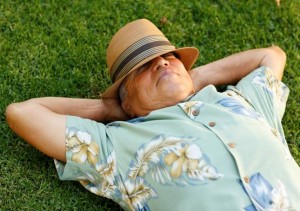When you’re feeling stuck inside from the crazy of the world outside you… travel into a sweet place with this mini-mental-vacation created by Positive Choice Biofeedback therapist Lucia Foster-Engen MA, BCB, CCTP...
Read MoreCalm is one of the top apps for meditation and sleep. It helps you build resilience and mental fitness by using: guided meditations, self-care programs taught by world-renowned experts, bedtime stories narrated by celebrity guests, mindful movement videos, and more. You can access Calm for a fee through purchase at app store on your electronic device. KP Members can receive the Calm app at no cost during the pandemic. To get started,...
Read More
Solutions to Insomnia
Sleeping Less in San Diego Can it Make You Sick, Fat, or Worse? By Vicki Pepper MS, RD If you are lucky, you will spend one-third of your life sleeping… and the other two-thirds of your life will be profoundly influenced by the quality and quantity of that sleep! Even one night of inadequate sleep can ruin your mood, impair your judgment, and sour your interactions with others. Most adults need seven to nine hours of sleep each night. However, if you are typical, you are getting less sleep than that, and possibly less sleep with each passing year. Before the invention of the light bulb, the average American slept nearly ten hours a night. There’s only so much you can do by candle light! The next 50 years saw only a slight decrease in average sleep times. However, National Sleep Foundation Polls in 2005 and 2012 showed slumber decreased to seven hours by 2005 and continued to drop to an average of just 6.2 hours of sleep by 2012. That is a drop of about three hours per night since the late 19th century; a drop of two hours per night over the past 50 years and about a forty minute drop a night just since 2005. If sleep is so important, how is it we value it so little? One reason may be that we are not good at recognizing the negative effects of too little sleep. A study conducted at the University of Pennsylvania restricted people to less than six hours of sleep per night for two weeks; only a half hour less than the current national average. Over the two-week study, the volunteers reported only a small increase in sleepiness and rated themselves as “functioning normally.” However, when they were tested for memory, problem solving, and reaction times, their mental and physical abilities worsened progressively over the two-week study. In fact, their abilities deteriorated to such a degree that by the end of two weeks, the sleep deprived volunteers were as impaired as people who had stayed awake continuously for 48 hours. Culturally we pride ourselves on needing little sleep. It’s not cool to be the one who goes to bed early. Pulling all-nighters and...
Read More
